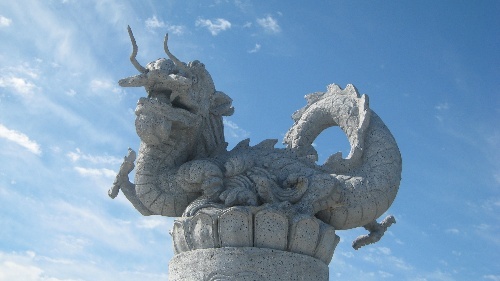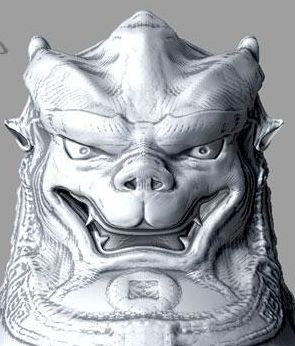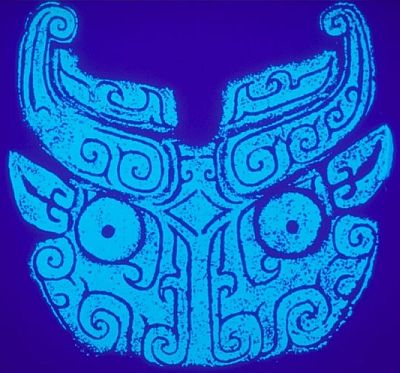This post is dedicated to all the readers who are about to create bonds of affection with citizens of the Middle Kingdom.
Moved by pure altruistic spirit, I hope with this post to help my fellow man to get off on the right foot from the beginning and experience the situation at the best.
No, I am not going to praise the countless positive aspects of getting married to a Son or Daughter of Heaven; instead, I am getting down to brass tacks, that’s to say that sooner or later you are going to have to come to terms with the Chinese relatives and, first and foremost, with the in-laws.
It’s very likely that the contacts with the galaxy of relatives is going to happen during Chinese new Year, when Chinese families get together.
In order not to be too much surprised by certain behaviors, it’s better to keep in mind that the concept of “having a good family time” residing in our big Western noddles is different from the corresponding idea in the brains of the Chinese akins.
So, dear reader, rush out to buy a permanent ink felt-tip, make a note on the palm of your hand and from time to time look at it: “It is not right or wrong, it’s simply different; there is nothing to argue about, nobody gives a dung about how we do things in the West.”
The only thing that matters to them is to pour out so much abundance on the son in law that in future he can only vigorously extol the magnificent hospitality received. In the end, it’s always about 面子 (miànzi) “face“.
In China it has always been this way, everybody does that, everybody likes it.
I am taking the assumption that you, my reader, are not a Gargantua devoted to pantagruelian meals, monster boozes and chain smoking. If this is the case, the Chinese New year would be an unforgettable experience, and you shall wait for it fidgeting with hastiness, and you will remember it with emotion in the following months.
If it is so, don’t read further!
If instead you are still reading, then you could be a more or less normal person, and maybe you would like to take advantage of the coveted vacation to have some quality time with your other half.
Sorry, bad news: you have to be prepared for a good shot of solemn frustration.
Maybe not the first time, because of the novelty factor; however it’s better to know some things in advance, so don’t stop reading.
The preparations for the CNY should start in advance, for example two weeks before, dieting on bread and water. This is going to be a a good thing however you look at it.
This measure may seem excessive, but remember that during the spring festival there is nothing but eating: there is an abundant breakfast, then you go to lunch, then you get up from your chair to go to dinner, and this goes on for days and days.
At these levels every little detail is important, so you must pay adamant attention to questions and answers, as when in the American legal thrillers they prepare questions and answers before the trial.
There are four things to keep under control at any cost.
- Favorite drink: the answer to any question like this must definitely be “boiled water”. This is going to make a good impression on you because this practice is in accordance with traditional Chinese medicine, and this will facilitate the hosts to the task of maintaining stocks of the thing always ready to be served at any time. Beware of other tricky questions like “What do you usually drink at home,” “What do you drink on meals” and the like. You can be sure that even if you say “morning dew and orchid nectar”, at best they will jump through hoops to get it, and at worst they’ll use some impossible substitute of domestic production, which you’ll have to toss off continuously hiding your bitter tears.
- Favorite food: the same applies to the favorite food: the answer must unconditionally be “raw vegetables.” This will seem strange to them but in line with the fact that you’re a foreigner, and you’ll have solved a big problem. Yes, because supposing that you said, “I like 麻婆豆腐 (mápó dòufu) ‘tofu sautéed with hot sauce'”.
From that moment on you’ll find this dish for breakfast, lunch, dinner, snack, midnight snack, on the bedside table, in the car, in the coat pocket, you understood already. At the end when you’ll have the natural reaction, there will be the usual show of long faces: “But you said you liked it …”
For the same reason, at a banquet never say that anything was particularly good, especially on a direct question. The correct answer is “everything was very good.”
- Favorite liquor: None. “I drink a little bit but very rarely and in small doses.” Recall that the threat of 茅台 (Máotái) is always lurking. A decent way out is 梅酒 (méijiǔ) “plum wine”, not too alcoholic, tastes pleasant to our palates and it’s easy to find, so it is not going to be too much trouble when they’ll buy it in industrial quantities, which is the obvious consequence of an answer like that.
- Favorite Cigarette: the ideal would be to say that you are a non-smoker. Otherwise I strongly recommend to cite health reasons and even simulate an occasional cough now and then.
It is natural to wonder whether the Chinese sons in law are treated in the same way.
Well, yes, but to a lesser extent: when they are all Chinese they obviously have much in common, so there is a certain sense of proportions. Of course there is a bias to overdo things, but in a less overblown way.
When there’s a foreigner around nobody knows what to do, what he/she is going to like. So if someone in the crew has read in some online forum that abroad everybody eats seven bananas per day, then it’s bananas popping out from everywhere.
Some other tips:
- Be prepared for unpleasant surprises at the end of the meal.
That is, since the first course you will be treated as a fattening goose, and if someone insists on putting delicacies in your plate and you refuse, it’s trouble.
When the waiters brought everything, and the table is packed, you may think that the worst is over. Then you relax and maybe you even dare to take more of something that you liked.
However, when you’re just full to bursting, there come the the 饺子 (jiǎozi) “dumplings.”
And then the 包子 (bāozi) “stuffed steamed buns.”
And then the 馒头 (mántou) “steamed buns (not stuffed)”.
This situation can quickly lead to a real disgust for food.
- Don’t worry about leftovers: if you eat only one-tenth of what there is on the table, then the rest is put in the fridge and consumed at ease in the following days. At the restaurant you’ll use 打包 (dǎbāo) “doggie bag” and take everything home.
- In Italy we say that Epiphany takes all the holidays away; in China there is no Epiphany, but eventually comes the time to go home, and behold the last danger: the gifts.
It could look like nothing, but when at the check-in you find out that your luggage weighs twice as the upper limit, there is nothing to do. If you do not want to pay through the nose, you have to unpack your bags and throw away the superfluous.
p.s. The advice from the previous years still holds (italian only, at the moment. sorry).
p.p.s good year of the rabbit to everybody!
Chinese 中文
Italian 意大利语


